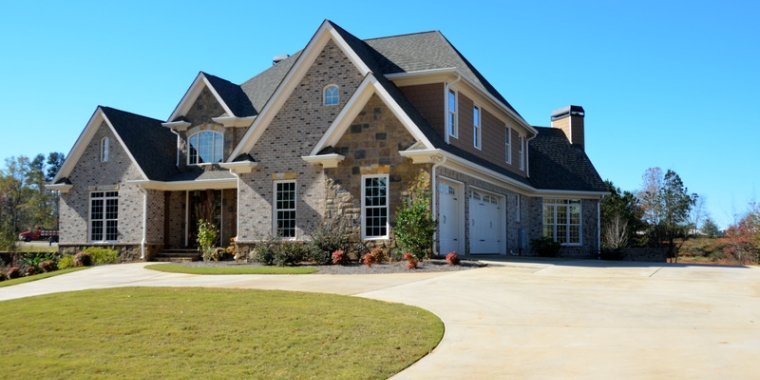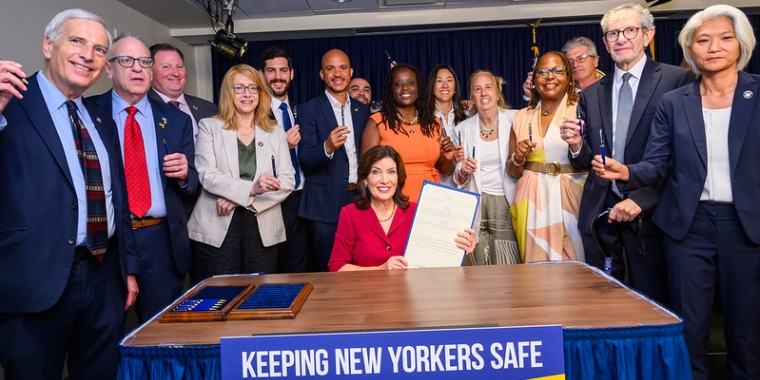Legislators Announce Major Housing Investments in State Budget FY2019-2020
Brian Kavanagh
April 2, 2019

(Albany, NY) — Senator Brian Kavanagh, Chair of the Senate Housing Committee, and Assemblyman Steven Cymbrowitz, Chair of the Assembly Housing Committee, announced major investments in housing that are included in the newly passed 2019-2020 State budget.
The budget increases funding and staff to enforce the rent laws in New York City, Nassau, Rockland, and Westchester; includes significant housing investments in communities ravaged by storms; establishes Home Stability Support, a new eviction prevention program; and restores funds the Governor had proposed to cut for foreclosure prevention and the Neighborhood and Rural Preservation Programs. The budget legislation also included a new law banning discrimination by landlords based on a tenant’s source of income.
Separately from the three-way budget negotiation, the Governor reportedly agreed to release $450 million in New York City Housing Authority (NYCHA) capital funds allocated in prior years that his office had withheld. However, the Senate and the Assembly have not yet reached agreement with the Governor to provide additional capital funding — proposed in each house’s respective budget resolution earlier this month — for repairs and renovations to address deteriorating conditions in NYCHA developments and other public housing around the state, deferring any decision on these proposals until later in the legislative session.
Senator Kavanagh said: “With this budget, we’re taking significant action to ensure that New Yorkers have access to safe and affordable housing in stable communities. We're making major capital investments to create new housing opportunities and restore and maintain existing homes across the state. We're also funding hundreds of local organizations that help ensure that tenants and homeowners have the resources they need to protect their rights and work with their neighbors to strengthen their communities. Unfortunately, while the Governor may now be willing to release long-delayed funding from prior budgets for the New York City Housing Authority, we have yet to reach agreement on additional funding the Legislature has proposed for NYCHA and other public housing authorities. We know that many of NYCHA's nearly half-million residents are living in deplorable conditions due to years of neglect by all levels of government. As capital budget negotiations continue, I'll continue to push for the State to do its part to address the dire needs of NYCHA residents.”
Assemblyman Cymbrowitz said: “I’m pleased that the Governor finally released the $450 million previously allocated for NYCHA, and we’ll be continuing our discussions regarding additional funding for the State’s housing needs, including NYCHA and upstate public housing authorities. There are still billions of dollars in critical infrastructure needs remaining at NYCHA that must be addressed. I’m gratified that the new budget provides funding to help vulnerable homeowners avoid foreclosure and remain in their homes, and restores funds for the Neighborhood Preservation Programs and Rural Preservation Programs that serve as vital resources in keeping our communities stable.”
Rent Law Enforcement: The budget provides a total of $64 million for administration and enforcement of rent regulation in New York City, Nassau, Westchester, and Rockland, including funding for an additional 94 staff positions, and $5.5 million for the Tenant Protection Unit (TPU). This is the first year the TPU is expressly included in the budget; in past years the Republican Senate majority had successfully fought to deny any dedicated funding, forcing the State Homes and Community Renewal (HCR) agency to divert funding from other areas to cover the cost.
Storm Recovery: The budget includes $72 million for storm recovery efforts. This funding will supplement existing federal funding allocated in prior years to continue ongoing construction projects related to damage that resulted from Superstorm Sandy and other major storms.
Foreclosure Prevention: The budget contains $20 million in foreclosure prevention services provided by 89 non-profit housing counseling and legal services organizations in every county in the State through the Communities First program. Budget legislation also made permanent certain requirements that had been adopted during the mortgage crisis, including a requirement that lenders alert homeowners when a mortgage default might pose a risk of losing their homes and requiring mandatory settlement conferences before any foreclosure is completed; these requirements will now apply to all residential foreclosures.
Home Stability Support: The Legislature voted to establish Home Stability Support (HSS), a new eviction prevention program, and to allocate $15 million in initial funding. The program will provide resources to prevent eviction, including emergency rent payments, keeping families and individuals on public assistance in their homes and out of homeless shelters. The program is expected to result in a net reduction in costs to taxpayers by reducing emergency shelter utilization and other costly services that are necessary when people become homeless.
Neighborhood and Rural Preservation: The Senate and Assembly successfully restored funding for the Neighborhood Preservation and Rural Preservation Programs, matching the current year level of $18 million, which covers service costs at 202 organizations that work to revitalize low- and moderate-income communities by preserving and increasing access to affordable housing.
HIV Housing Assistance: The budget provides $5 million in funding for HIV Housing Assistance, which would expand housing access and help homeless and unstably housed persons with HIV who live upstate and on Long Island as part of the State’s Blueprint for Ending the Epidemic. The funding will allow social services departments to partner with local health payors and community-based organizations to pilot strategies to provide rental subsidies.
Affordable Housing Corporation: The budget dedicates $26 million for the Affordable Housing Corporation, which provides funding that supports homeowners, including down payment and closing cost assistance, new construction and rehabilitation of owner-occupied, one- to four-family homes and mobile home replacement programs. This funding will address New York’s low rate of homeownership, including racial and ethnic disparities in homeownership.
Manufactured Homes: The budget provides $5 million for the Manufactured Home Advantage Program to continue funding low-interest loans and grants for the acquisition and rehabilitation of manufactured homes and manufactured home parks around the State. Loans made under this program can be used to make capital improvements, purchase new properties or refinance debt to help keep parks affordable for residents. Additionally, the budget improves the administration of the STAR exemption/credit by changing the way that manufactured home park owners and operators register each year, and increases transparency in HCR oversight of these parks by requiring the agency to release an annual report to the public of the information collected via registration forms. Although they're commonly referred to as "mobile homes," once situated, these structures are anything but mobile, giving the lot owner a significant advantage over vulnerable tenants. Assemblyman Cymbrowitz and Senator Kavanagh have committed to work to improve HCR oversight of these parks and protect residents.
Income Non-Discrimination: Legislation included in the budget will prohibit landlords from discriminating against prospective tenants based on their source of income, such as Section 8 and disability benefits. New Yorkers who feel they have been discriminated against because of their source of income will be able to file complaints with the State Division of Human Rights. When source of income discrimination is prohibited, families in need are able to gain greater access to decent, affordable housing. This will help protect the State’s most marginalized populations, including homeless New Yorkers who need housing.
###
Share this Article or Press Release
Newsroom
Go to Newsroom

